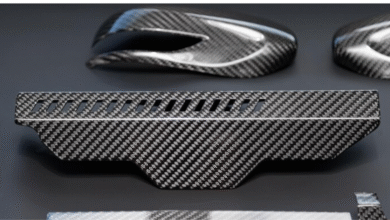Top 5 Tips for a Smooth Car Shipping Process to Nigeria

Shipping a car to Nigeria, whether for personal or business purposes, can seem like a complex process. From navigating international shipping requirements to handling customs clearance, there are many factors to consider. However, with the right guidance and preparation, you can successfully ship car to Nigeria without unnecessary delays or complications. This process requires careful planning, attention to detail, and choosing the right shipping company and methods.
In this guide, we’ll walk you through the top 5 tips for a smooth car shipping process to Nigeria. Whether you’re deciding between Roll-On/Roll-Off (RO-RO) or container shipping, ensuring your documents are in order, or preparing your vehicle for shipment, these tips will help you avoid common pitfalls. By the end of this article, you’ll be equipped with all the information needed to ship your car to Nigeria safely and efficiently.
1. Choose a Reliable Shipping Company
The first and most crucial step in the car shipping process is selecting a reputable shipping company.
- Research Thoroughly: Look for companies with experience in shipping cars to Nigeria. Read online reviews, check ratings, and ask for recommendations.
- Verify Licenses and Certifications: Ensure the company is licensed by recognized authorities like the Federal Maritime Commission (FMC).
- Compare Services: Check if they offer different shipping methods like Roll-On/Roll-Off (RO-RO) or container shipping, depending on your needs.
Pro Tip: Request quotes from at least three companies to compare prices and services before making a decision.
2. Prepare All Necessary Documents
Shipping a car internationally requires specific paperwork to ensure customs clearance and avoid delays.
Here’s a checklist of the essential documents:
- Vehicle Title: Proof of ownership.
- Bill of Sale: If the car was recently purchased.
- Bill of Lading: Provided by the shipping company as proof of shipment.
- Copy of Your Passport or ID: Required for identification purposes.
- Import Permit (if applicable): Depending on Nigerian import regulations.
Make sure these documents are complete, accurate, and submitted on time to avoid customs issues in Nigeria.
3. Select the Right Shipping Method
There are several shipping options available, and choosing the right one is essential for a smooth process:
- Roll-On/Roll-Off (RO-RO):
- Most cost-effective method.
- The car is driven onto a specialized ship and driven off at the destination.
- Ideal for operational vehicles.
- Container Shipping:
- Offers more protection for the vehicle.
- Suitable for high-value or luxury cars.
- You can choose full-container (exclusive) or shared-container (cost-sharing) options.
- Air Freight (Rare):
- Fastest but most expensive option.
- Typically used for luxury or time-sensitive shipments.
Pro Tip: RO-RO is often the most popular method for shipping cars to Nigeria due to its affordability and simplicity.
4. Ensure Proper Vehicle Preparation
Before shipping, your car must meet specific requirements and be properly prepared.
Steps to Prepare Your Car for Shipping:
- Clean the Vehicle: Both the interior and exterior should be cleaned to simplify inspection.
- Remove Personal Items: Shipping regulations usually prohibit personal belongings inside the car.
- Inspect the Vehicle: Note the car’s current condition, including scratches or dents. Take photos for reference in case of disputes.
- Check Fluids and Battery: Ensure there are no leaks, and the battery is charged.
- Disable Alarms: Prevent unnecessary alarms during transit.
- Keep Fuel to a Minimum: Typically, less than a quarter tank is required for shipping.
Proper preparation minimizes risks of damage and ensures compliance with shipping regulations.
5. Work with a Reliable Clearing Agent in Nigeria
Once your car arrives in Nigeria, a customs clearing agent will help facilitate the import process.
How to Choose the Right Clearing Agent:
- Verify Credentials: Ensure they are registered with Nigerian customs authorities.
- Check Reviews: Look for agents with a strong track record of reliability and efficiency.
- Discuss Fees Upfront: Get a clear understanding of their charges, including customs duties and taxes.
Your clearing agent will handle customs formalities, ensure your car is released on time, and guide you on any additional requirements.
Bonus Tips for a Seamless Experience
- Understand Customs Duties and Taxes: Be prepared for costs like import duties, VAT, and processing fees, which depend on the car’s value and age.
- Track Your Shipment: Use tracking tools provided by the shipping company to stay updated on your car’s status.
- Communicate Regularly: Stay in touch with the shipping company and clearing agent to address any issues promptly.
Conclusion
Shipping a car to Nigeria doesn’t have to be stressful. By following these five tips—choosing a reliable shipping company, preparing documents, selecting the right method, prepping your vehicle, and working with a trusted clearing agent—you can ensure a smooth process from start to finish.
Planning ahead and staying informed are the keys to avoiding delays, extra costs, and unnecessary headaches. With the right approach, your vehicle will reach Nigeria safely and ready for the road.




